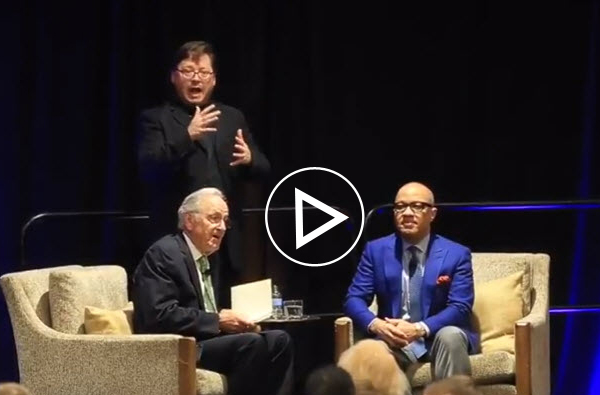In a world filled with bad news, we have two terrific things to report! The first is that the Ford Foundation is doing a FANTASTIC job of including the 1-in-5 people with a disability. They are the first major foundation to ensure that people with disabilities can have the same access to their good deeds as anyone else. Below you will find an outstanding explanation from the Ford Foundation on why and how they are doing this. Be sure to check out both the blog and video, as they are different.
The other piece of great news is that ANY nonprofit organization can get in on the act! TODAY, Nov. 8th at 1:30 PM ET we are hosting a free webinar with the Jewish Federation of Greater Washington. They will share a wonderful new free self-assessment toolkit they have created to help nonprofits and faith-based groups of any kind with disability inclusion. You can sign up to join us for free HERE.
Enjoy! It’s not every day that the 56 million Americans with disabilities get treated equally! #LeadOn
President, www.RespectAbility.org

Why disability rights are central to social justice work—and what we’re doing about it
Last fall, Darren Walker wrote an essay urging all of us to acknowledge our personal biases and to understand how those biases can fuel injustice and inequality. Darren’s call grew out of his own awakening: the realization, brought to light by friends and activists, that for all the foundation’s attention to challenging inequality, we hadn’t accounted for the huge community of people living with disabilities. It was a humbling moment, he wrote.
As the past year has shown, it has also proved to be a consequential one. It quickly became clear that our focus on inequality demands that we think seriously about disability issues. It became equally clear that across all our programs, the specific outcomes and goals we’re working to achieve simply cannot be accomplished without addressing the needs, concerns, and priorities of people with disabilities. And so, guided by the disability movement’s mantra, “Nothing about us without us,” we’ve been working to confront ableism and expand participation and inclusion on both the institutional and the individual levels. It turned out we had a lot to learn.
As the program officer in the Office of the President, I steward some of the foundation’s exploratory grant making under Darren’s direction, assessing and investing in new ideas that don’t yet have a home elsewhere in the foundation. Among those efforts, I lead our exploration of how inequality impacts the more than one billion people with disabilities around the world. Over the past year, I’ve met with more than 80 activists, leaders, self-advocates, and funders who focus on people with disabilities. It has been a profound privilege to spend time with and learn from them, and the result has been what I believe is some of the most urgent and meaningful work of my professional life.
We began this effort by asking all Ford Foundation programs to examine their work and create an “inventory” that included any past, current, and potential grantees working on disability issues. Along with surfacing valuable work, the exercise helped illuminate the range of approaches being used across the foundation, which in turn helped us identify areas of strength to build on, along with gaps to address. It also helped us begin to understand the best ways to support learning and exploration as we more formally enter a new area of work—something that can be particularly challenging in a large and diverse foundation and therefore, we think, especially important.





